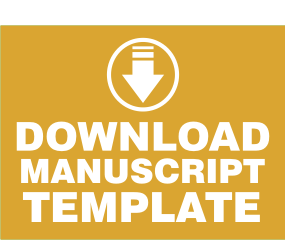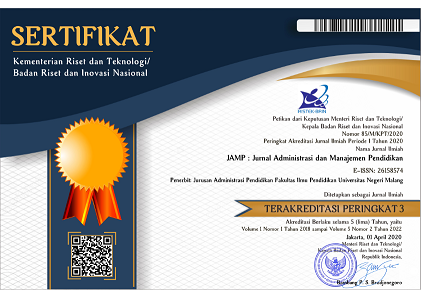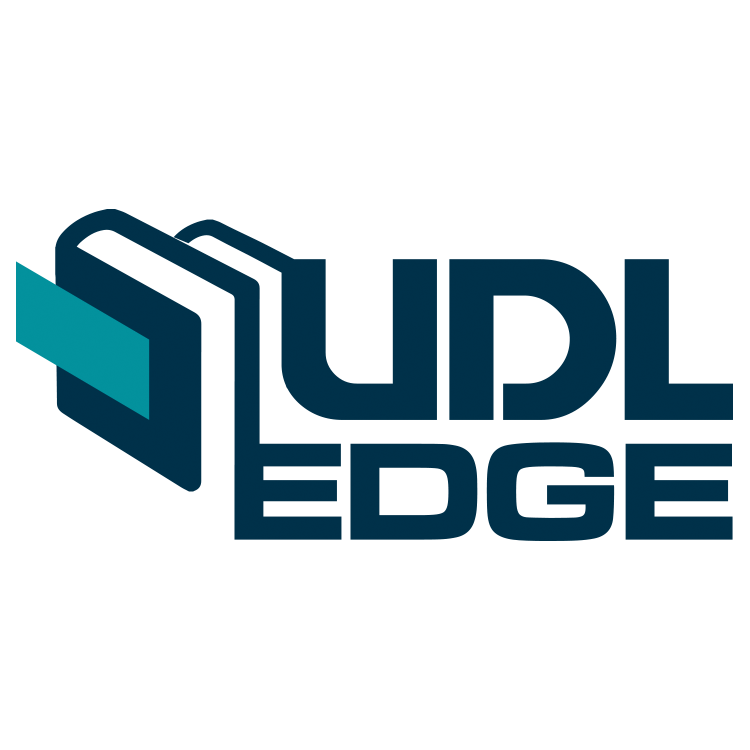Students’ Perceptions of the Faculty of Teacher Training and Education (FTIK) IAIN Kerinci on the Effectiveness of Online Lectures during the Covid Pandemic 2019
Abstract
Abstract: This research was conducted to find out how students perceive the effectiveness of implementing online education during the corona virus outbreak, and to find out what factors are inhibiting and supporting the implementation of online learning during the pandemic. The research method uses quantitative methods, through descriptive surveys. Data collection techniques with questionnaires, interview respondents in this study amounted to 350 students. The results of this study show. Student perceptions of online learning during the pandemic showed that 24.7% of students were satisfied with the implementation of online learning and 75.3% of students expressed dissatisfaction with the implementation of online learning. Student perceptions about the application used zoom meeting 27.4%. the use of the google classroom application is 13%, the etmodo application is 8% and the use of other applications is 7.3%. Students' perceptions about the affordability of access 52.8% can access learning materials anywhere and anytime, and 47.2% say it is difficult to access learning materials. Student perceptions of online learning as independent learning 53.6% said they were satisfied and 46.4% said they were not satisfied. Student perceptions of online learning communication and equity 57.5% said they were satisfied and 42.5% said they were not satisfied. Factors supporting the implementation of online learning are internet quota assistance from the center, flexibility in accessing material (information), developing applications or learning ethnology. The inhibiting factors are increasing costs, uneven network, no variety of methods, and no 2-way communication
Keywords: Perception, Effectiveness, Online learning
Full Text:
PDFReferences
Abidah, A., Hidaayatullaah, H. N., Simamora, R. M., Fehabutar, D., & Mutakinati, L. (2020). The Impact of
Covid-19 to Indonesian Education and Its Relation to the Philosophy of “ Merdeka Belajar .” Studies in
Philosophy of Science and Education. ..” Studies in Philosophy of Science and Education, VOL-1, 34–49.
Adhetya Cahyani, Iin Diah Listiana, and S. P. D. L. (2020). Motivasi Belajar Siswa SMA Pada Pembelajaran
Daring Di Masa Pandemi Covid-19,” IQ (Ilmu Al-Qur’an): Pendidikan Islam 3, 3 (1).
Arifa, Fieka Nurul. “Tantangan Pelaksanaan Kebijakan Belajar Dari Rumah Dalam Masa Darurat Covid-19.” Info
Singkat;Kajian Singkat Terhadap Isu Aktual Dan Strategis XII, no. 7/I (2020): 15. http://berkas.dpr.go.id/
puslit/files/info_singkat/Info Singkat-XII-7-IP3DI-April-2020-1953.pdf
Basilaia, G., & Kvavadze, D. (2020). Transition to Online Education in Schools during a SARS-CoV-2 Coronavirus
(COVID-19) Pandemic in Georgia. Pedagogical Research. ). Https://Doi.Org/10.29333/Pr/793, 4/5.
Chaeruman, U. A. (2008). Karakteristik Siswa Abad 21. Gramedia.
Dadang. (2021). Efektivitas Pembelajaran Online Learning Pada Masa Pandemi Covid-19 di Fakultas Keguruan
dan Ilmu Pendidikan Universitas Pamulang. EDUKA (Jurnal Pendidikan, Hukum, dan Bisnis, Vol. 6 No.,
–24.
Firmansyah. F. (2021). Motivasi Belajar Dan Respon Siswa Terhadap Online Learning Sebagai Strategi
Pembelajaran Di Masa Pandemi Covid-19. Edukatif. Jurnal Ilmu Pendidikan, 3(2), 589–597.
Galuh Raga Paksi. (2021). Persepsi Mahasiswa Tentang Efektivitas Komunikasi Pengajaran Jarak Jauh Darurat Di
Masa Pandemi. Jurnal GANDIWA: Gagasan, Media Dan Wacana, Vol. 01 No, 24–34.
Handarini, Oktafia Ika, and Siti Sri Wulandari. “Pembelajaran Daring Sebagai Upaya Study From Home (SFH)
Selama Pandemi Covid 19.” Jurnal Pendidikan Administrasi Perkantoran (JPAP) 8, no. 3 (2020): 498. https://
journal.unesa.ac.id/index.php/jpap/article/view/8503.
Wisda dkk, Students’ Perceptions of the Faculty ...
Helana Mija. (2022). Efektifitas Pembelajaran Daring pada masa Pandemic Covid-2019 di SMA Negeri 1 Sukawati
(Artikel; Seminar Nasional) Seminar Nasional (PROSPEK I) “Digital Learning Merdeka Belajar Kampus
Merdeka:Strategi dan Inovasi Pembelajaran. Makalah Seminar Nasional, 18 Januari.
Jalaluddin Rahmat. (2007). Metode Penelitian Komunikasi Dilengkapi Contoh Analisis Statistik. PT REMAJA
ROSDAKARYA.
Khusniyah, N. L., & Hakim, L. (2019). Efektivitas Pembelajaran Berbasis Daring: Sebuah Bukti Pada Pembelajaran
Bahasa Inggris. Jurnal Tatsqif, 17(1), 19–33.
Kristi, Wadani, et. al. (2018). Persepsi Mahasiswa PGSD terhadap Bahan Ajar E-Learning Mata Kuliah Media
Pembelajaran,. Sosiohumaniora, Vol, 4, No. 1, 2018, VOL 4. NO.
La Ode Anhusadar. (2020). Persepsi Mahasiswa PIAUD terhadap Kuliah Online di Masa Pandemi Covid-19.
Kindergarten: Journal of Islamic Early Chilhood Education, Vol. 3, Np.
LATIF, A. (2020). Komunikasi Pada Pembelajaran Jarak Jauh Di Masa Pandemi COVID-19.”. Edukasi dan
Teknologi, 1 (2).
Masri Singarimbun, S. E. (2008). Metode penelitian survey. LP3ES.
Misran DKK. (2020). Persepsi Mahasiswa Terhadap Pembelajaran Online Selama Pandemi Covid 2019. Kelola:
Journal of Islamic Education Management, 5 (2), 125–136.
Mukarromah, S. A. (2020). The Effect of Online Learning Model in Communication Activeness in Classroom
Students of The Faculty of Education and Teacher Training UIN Maulana Ibrahim Malang. Proceeding
International Conference on Islamic Eduction. PROCEDING International Conference on Islamic Eduction,
–236.
Purnomo, W.(2008). Materi Diklat Penulisan Bahan Ajar Berbasis Web.
Rahmaniyah, A. A. . . (2013). Pengembangan Bahan Ajar Berbasis E-learning pada Materi Hidrokarbon dan
Minyak Bumi Kelas X Semester 2. SKRIPSI Jurusan Kimia-Fakultas MIPA UM, 00.
Riada Sahara. (2014). Analisa Performasi Mobile Learning dengan Konten Multimedia pada Jaringan Wireless
Studi Kasus Pada Fakultas Ilmu Komputer Universitas Mercu Buana. IncomTech, Jurnal Telekomunikasi
Dan Komputer, Vol. 5, No(KOMPUTER), 252.
Riduwan. (2009). metode dan teknik penyusunan proposal penelitian. alfabeta.
Riyana, C., & Pd, M. (2020). Konsep Pembelajaran Online. Modul Pembelajaran On-Line, 1. Modul Online-1
UT, 1.
Sefriani, R., Wijaya, I., & Radyuli, P. (2018). Development Of Android Based Learning Media On The Subjects
Of Digital Photo Composition For Vocational High School Student. Jurnal Ilmiah Pendidikan Teknik Elektro,
(2).
Sun. Anna dan Xiufang Chen, Online Education and Its Effective Pratice: A Research Review, Journal of
Information Technology Education Research, Vol 15, 2016.
Sujarwo. (2016). Pendidikan Orang Dewasa. Disampaikan dalam Diklat Pekerti untuk Dosen. UNY. ARTIKEL
-DIKLAT.
Suryawan, O. (2020). Guru Diminta Aktif Awasi Pembelajaran Daring Agar Siswa Tetap Fokus.
BBALIPUSPANEWS.COM.
Unik Hanifah S. DKK. (2020). Peran Teknologi dalam Pembelajaran di Masa Pandemi Covid 19. AL-Mutharahah,
(2), 188–189.
Veri, J., Sefriani, R., Aulia, L. (2019). Pengembangan Mobile Learning Berbasis Client Server Pada Mata Pelajaran
Simulasi Digital. UPI YPTK Jurnal KomTekInfo, 5 (3), 61–71.
Widodo, A., & Nursaptini, N. (2020). Merdeka belajar dalam pandemi: Persepsi mahasiswa terhadap pembelajaran
jarak jauh berbasis mobile. Jurnal Pembangunan Dan Pendidikan: Fondasi Dan Aplikasi. Pembengunan
Pendidikan Fondasi dan Aplikasi, 8 (2)(Pendidikan), 86–96.
Wiranda, T., & Adri, M. (2019). Rancang Bangun Aplikasi Modul Pembelajaran Teknologi WAN Berbasis Android.
Voteteknika (Vocational Teknik Elektronika Dan Informatika),. 7(4).
Yusuf, B. B. (2017). Konsep dan Indikator Pembelajaran Efektif. Jurnal Pembelajaran dan Keilmuan, 1(2), 14-20.
Retrieved Maret 1, 2021
Zhu, X., & Liu, J. (2020). Education in and After Covid-19 : Immediate Responses and Long Term Visions.
DOI: http://dx.doi.org/10.17977/um027v5i42022p364
Refbacks
- There are currently no refbacks.
Copyright (c) 2022 RINI SYEVYILNI WISDA

This work is licensed under a Creative Commons Attribution-ShareAlike 4.0 International License.


This work is licensed under a Creative Commons Attribution-NonCommercial-ShareAlike 4.0 International License.









12.png)